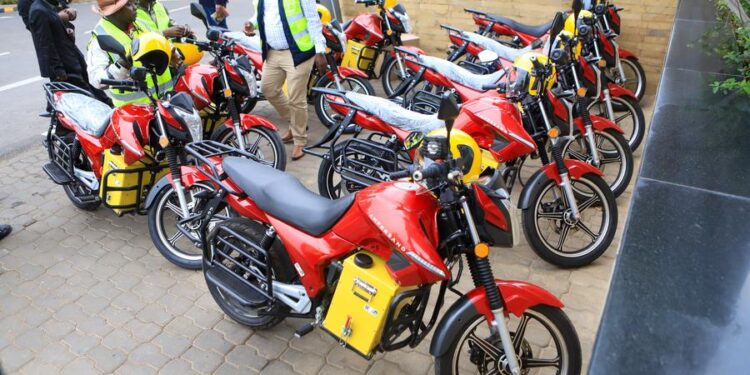By Enyichukwu Enemanna
Rwandan authorities have announced the discontinuation of registration of petrol-powered motorbike taxis, a policy that will take effect from next year as the East African country seeks to transition towards electric vehicles (EVs).
“The goal is to promote the use of cleaner, more efficient energy and reduce gas emissions,” Minister of Infrastructure Jimmy Gasore announced on Monday.
The rule will only apply in the capital Kigali and to motorbikes used for the purpose of taxis, the dominant means of public transportation in the city.
Rwanda has several subsidies in place to promote electrification, including cheaper electricity for charging and tax breaks for companies producing batteries.
An estimate by the ministry indicates that there are about 110,000 motorbikes in Rwanda, out of which 70,000 are used as taxis, including 30,000 in Kigali.
Eve Kayiranga, manager of SAFI Universal Link, one of several Rwandan firms selling electronic bikes, welcomed the announcement as “a significant step forward for a greener city”.
“This policy not only helps reduce carbon emissions but also demonstrates the progress made in building supportive infrastructure for e-mobility in Rwanda,” she said.
E-bikes have also been welcomed by drivers.
Alfonse Mbarabuceye, 32, said his daily income had increased by half since switching from petrol in 2022.
“It has significantly reduced the cost of maintaining the bike, as all I have to do now is change its battery once or twice a day,” he said.
Heritage Times HT reports that UN Environment Programme says globally, the transport industry is the fastest-growing source of greenhouse gas emissions and is expected to produce more than 30 per cent of those gases in the future. It is also a leading emitter of short-lived climate.
Rwanda is aiming to have 20 per cent of buses, 30 per cent of motorcycles and 8 per cent of cars electrified before the end of 2030.
Rwanda is aiming to achieve its goal of becoming a carbon neutral nation.




































